It was about health and vaccination that we talked about in the last FMUL Talk. Because where there is knowledge, there is no place for speculation. We fight the misinformation and fears generated around the vaccine against Covid-19, with the explanations of a panel of experts of excellence, who joined a virtual conference, open not only to our entire community, but also to society in general.
Professor Joaquim Ferreira moderated the debate, which started with more than 100 participants, highlighting the relevance of the topic that marks the return of FMUL Talks of the Faculty of Medicine of the University of Lisbon, in the midst of a health crisis, on a day conspicuous for the rampant increase in Covid-19 cases in Portugal, and when the European Medicines Agency approved yet another vaccine, this time from the Moderna pharmaceutical company.
At the opening of the conference, Professor Fausto Pinto briefly contextualised the current pandemic situation in the world, when “we are close to 90 million cases and 2 million deaths”, he stressed, adding that Covid-19 is currently the fourth cause of death in Portugal and the second in the United States of America. He also highlighted the great capacity of the medical and scientific community "in the analysis of evidence", which contribute to "the most appropriate decision-making", and pointed out that vaccination was the right way for group immunity.
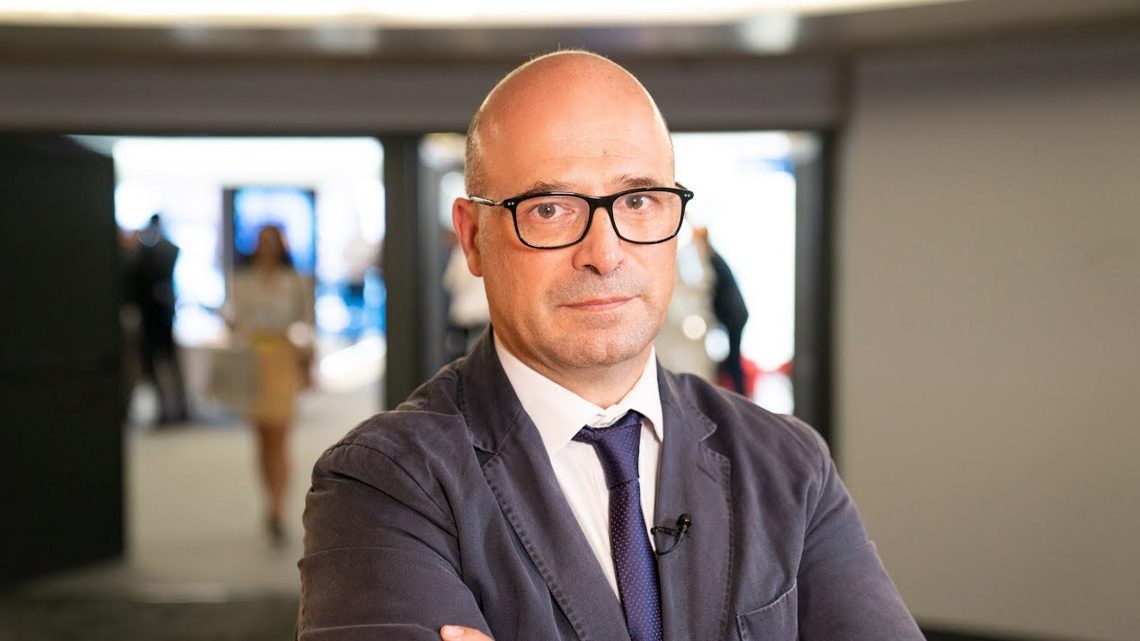
Professor Joaquim Ferreira, Talk Moderator
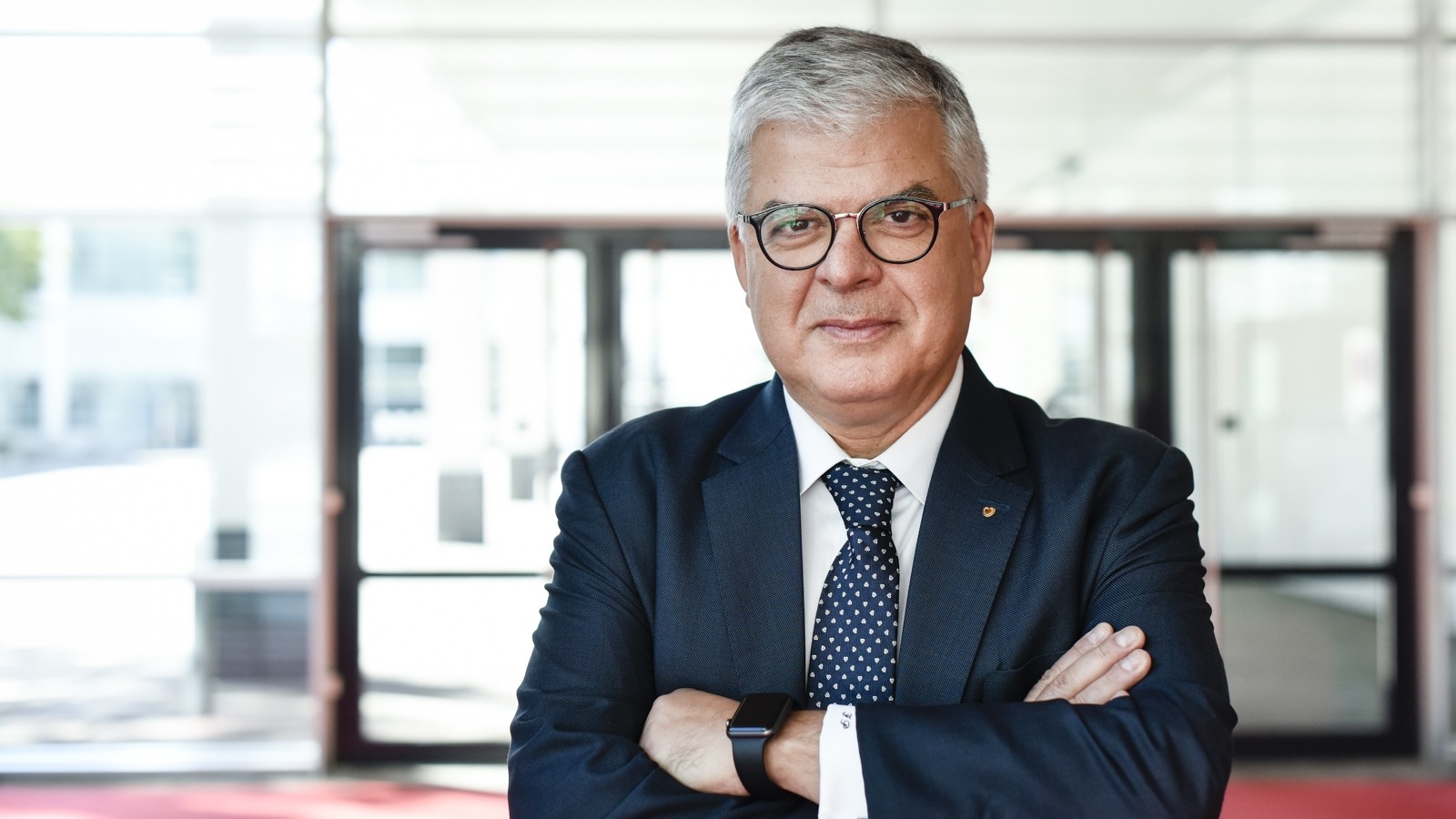
Fausto J. Pinto, FMUL's Director
Fausto J. Pinto also stated that we are witnessing “one of the most significant advances in scientific terms”, which made it possible to create a vaccine in 9 months, considering the methodology applied to RNA as “brilliant”.
Appealing to the “assertiveness” of the medical community, the Professor stated that the “national aim” at this moment is “the massive implementation of the vaccine”. He argues that the top priority should be to define a concrete strategy to vaccinate as many people as possible as soon as possible. And he questions why, so far, only 30,000 doses of vaccines against Covid-19 have been administered, indicating the example of Israel, where citizens over the age of 65 have already been vaccinated.
In response to the question regarding natural group immunity and vaccination, Professor Ricardo Mexia began by presenting a historical perspective on group immunity, which started to be addressed in 1910, covering the topic over time, until the moment of the “new era of vaccines (from the 1950s)”.
Regarding the current challenges, he understands that they are related to “sociological issues”, highlighting that people who choose not to be vaccinated benefit from group immunity, despite the breach of the “civic duty” of vaccination.
He explained that group immunity is a “population concept”, in which “protection is conferred by the community”. Contrasting the two possible scenarios, Ricardo Mexia said that “the natural way to reach group immunity is ethically questionable, being that we have no examples in history where this has happened”. Hence it is through the “artificial route, with vaccination, that we will get there”.

Professor Ricardo Mexia
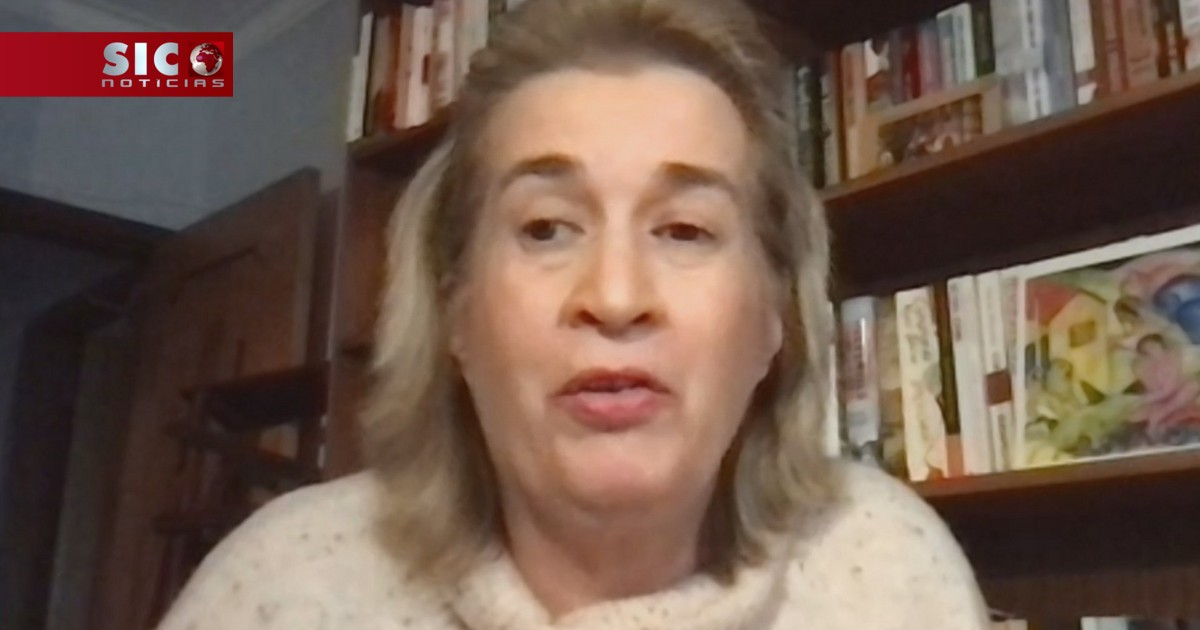
Professor Cristina Sampaio
Ricardo Mexia also discussed the threshold for group immunity, explaining how the calculation of these values, which are "non-linear", as well as the limitations of the group, take place.
Although "it is still unclear whether vaccination will prevent infection" by the new coronavirus, the Professor and Public Health Doctor has no doubt that "vaccination is the way to stop this pandemic".
In turn, Professor Cristina Sampaio presented solid arguments to eradicate any doubts or speculation about the course of clinical trials, in which the possibility of skipping stages in the development of vaccines was object of great media coverage. With the guarantee that “stages were not skipped”, the Professor explained that “the main cause of the rapidity is that the RNA technology [discovered in the 1960s] was available, and the speed of clinical trials is linked to an injection of substantial funding, as not seen before; the very Covid-19, which is a rapid disease”, which made it possible to carry out the tests quickly; and the “international collaboration of all sectors to break down procedural and human barriers”, she clarified.
In addition, Cristina Sampaio noted that large-scale production, “without certainty of effectiveness”, was decisive for the arrival of a vaccine that was both claimed and contested. The Professor also stated that, "there is the possibility of accepting submission packages that contain much less studies than those that are normally required, as it is an emergency situation".
She believes that “the repetition of the motto that it was impossible to have a vaccine before the end of the year” rooted this same idea in the population, who reacted with some suspicion in the face of the opposite result. “It doesn't mean that we were wrong, but we were being very pessimistic”, she said, adding: “It is said that years have been converted into months”, however, “those years are not spent doing Science”, but rather providing the means and resources (human, financial, among others) to carry out scientific research work.
In response to one of the questions posed by the audience, the Professor explained that “not all clinical trials are audited”, and their inspection does not stem from a mandatory standard, since “ethics commissions have a duty to monitor them”.
And it was precisely what the clinical trials taught us that FMUL Talks focused on, with the presentation of Professor Joaquim Ferreira. "These trials told us that hydroxychloroquine was not effective for treating Covid-19," he explained, mentioning the "positive history of dexamethasone", as it proved "effective in treating some patients with Covid-19".
As for the history of remdesivir, Joaquim Ferreira understands that we are facing a “more complex” matter, “but even if it is effective, the magnitude of the effect is minimal and, in this sense, we are limited, so there is a need to explore other alternatives, namely vaccines”.
Then, the Professor presented the data published by Pfizer, Moderna and AstraZeneca regarding the tests carried out in the scope of the vaccine.
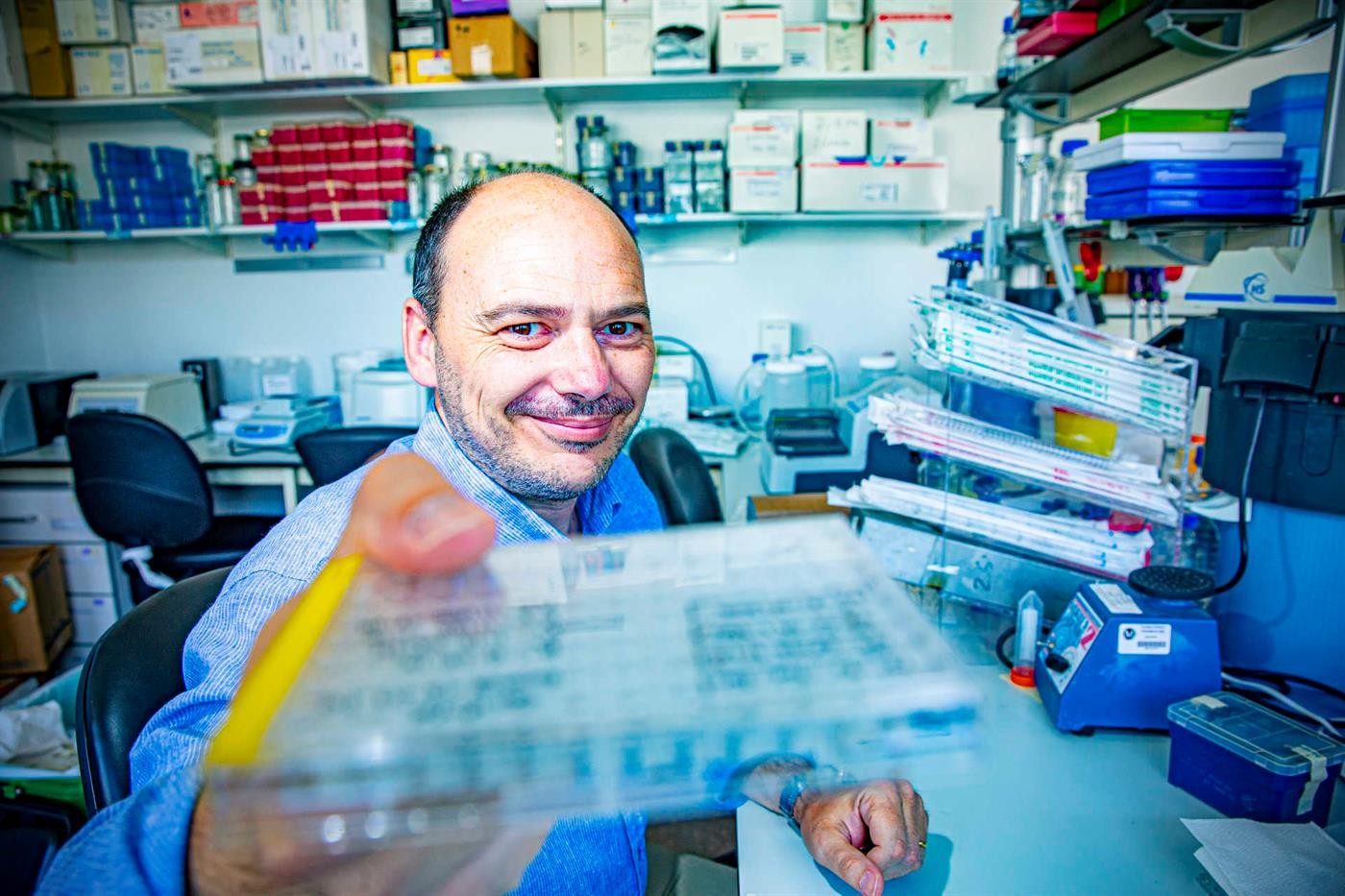
Professor Luís Graça
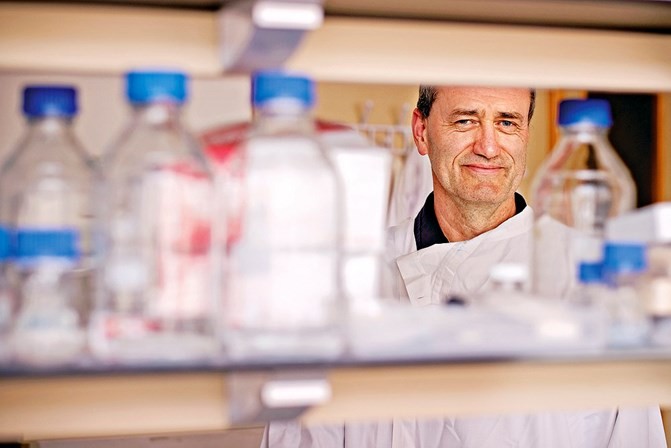
Professor Thomas Hanscheid
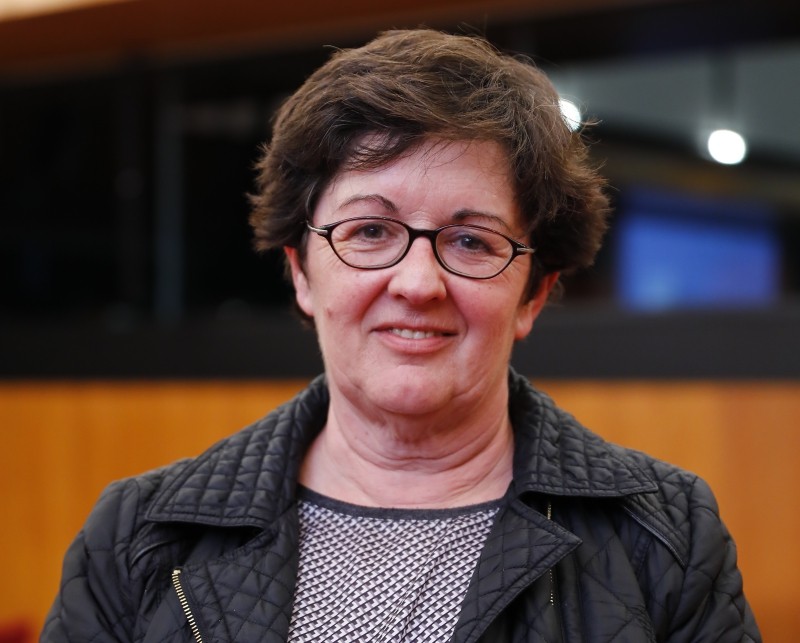
Professor Emília Valadas
And about the way these vaccines work, Professor Luís Graça explained how the immune response works in viral infections, as well as the action of T and B cells.
Talking about the production of antibodies against SARS-CoV-2, the Professor explained that “with the vaccine, there is a boost in the immune response, which protects us”, stressing that “what gives us protection are neutralizing antibodies”, defending that the main objective of a vaccine is to “create protective antibodies at the first infection”, in order to neutralize the virus, thus discussing the very concept and current definition of the vaccine.
Highlighting the importance of previous research, namely studies on SARS Cov-1/MERS, Luís Graça analysed the impact of the second dose of the vaccine, “in which there is more antibody and greater affinity (neutralization)”, and ended his talk by listing some questions, the answers to which are still uncertain. "We do not know whether the vaccine prevents transmission, whether there is a loss of efficacy in older individuals, the duration of protective immunity and whether vaccination can lead to selective pressure for the emergence of new strains".
And it was in this exact direction that the debate continued, with Professor Thomas Hanscheid's comment about the mutations of the virus and whether or not they can impair the effectiveness of vaccines against Covid-19.
Starting by demystifying the reality of virus mutation, which is “normal” - evoking the case of Measles, whose “mutation level is similar and it was not necessary to change the composition of the vaccine” - the Professor said that the strain detected in the United Kingdom is of greater concern, given the number of mutations found (17), and the problems that this new variant poses to the vaccine are due to the fact that it is highly infectious. “The fact that it is more contagious forces us to follow the case of Israel and vaccinate everyone, even faster”, in order to stop “this exponential increase” and prevent further contagions and deaths, explained the Professor, commenting on the specific cases of a strain detected in South Africa and, more recently, in Nigeria, “about which we know very little yet”.
But who should and should not be vaccinated after all? And when can we stop wearing a mask? Professor Emília Valadas answers categorically: “Everyone!”. Exceptions exist and apply "to children under 16 and to very rare and particular situations", that is, "to a small group of people about whom there is doubt about the effectiveness of the vaccine". "The elderly and the immunocompromised, although less efficacy is expected, should not be excluded".
On this particular topic, Professor Joaquim Ferreira warns of the need to reverse current thinking, explaining that because they have a serious or chronic disease, this group of the population should be considered a priority in the context of vaccination against Covid-19.
Regarding the administration of the vaccine to pregnant women, Professor Emília Valadas understands that “it is cautious not to recommend” vaccination in this specific case, and in breastfeeding situations there is, to date, no evidence to support the same principle.
Revealing that, so far, it is estimated that “15 million vaccines have been administered”, the Professor analysed the recommendations of the CDC (Centre for Disease Control and Prevention, based in the United States) regarding the side effects, noting the few severe adverse reactions detected so far. In turn, "the English recommendations draw attention to the need for monitoring for at least 15 minutes after the vaccine is administered", which is why she does not advocate vaccination in chemists.
“There is no contraindication in vaccinating people with a new infection”, she said, with the proviso that “they will not be a priority”. According to the Professor, "it is time to vaccinate as many people as possible, as soon as possible".
Regarding the use of masks, Emília Valadas affirms that it is a habit to maintain “as long as the situation is not resolved”. She pointed out the existence of some studies, "some even controversial", on the masks that, "not being magical", are an essential measure in combating the spread of the virus. In addition to wearing masks, the Professor stressed the importance of washing hands and surfaces, as well as airing rooms.
Emília Valadas also spoke of “Covid-19 survivors” and possible chronic diseases, “with a still unknown prognosis”.
With Covid-19, societies around the world have been victims of another pandemic, the “misinformation pandemic”, a name given by Professor Fausto Pinto to the fake news phenomenon, whose contagion rate is, indeed, alarming. The Professor closed FMUL Talks referring to “the part which, if it were not tragic, would be comical”, in an analysis of the reality “that has created more anomalous situations in recent times”, triggered by “protest groups based on ignorance”. And the consequences of what he considers to be "a malignant disease" can be "dramatic", guarantees the Professor.
Of the fake news that was publicly released about vaccination, Fausto Pinto cited “that of an individual vaccinated against Covid-19 who had developed cannibalistic instincts”, a case of fake Twitter accounts and also a post on social networks that suggested that “RNA technology altered DNA” and “75% of vaccines had side effects”.

Representative image of RNA

DNA
This, and all kinds of fake news, can be reported on the official website of the World Health Organization, "where it is possible to communicate this type of misinformation".
Mistrust has serious implications on behaviour, warned Professor Fausto Pinto, reiterating the importance of assuming “a pedagogical attitude towards the population, transmitting safety to people”. "Even saying "I don't know", when it is said with assertiveness and in an appropriate way, it conveys confidence".
In the final remarks, the Professor guaranteed that "we are facing a catastrophe", admitting that the scenario may worsen, which led to the reinforcement of the appeal stated above: "The main objective must be vaccination".
In a time of “maximum containment”, Fausto Pinto argues that all efforts and resources must be used, with a view to “massive vaccination”, especially at a time when the virus is attacking powerfully - “the result of easing restrictions at Christmas and the appearance of a new highly contagious variant”- and when “our National Health System is on the red line”. "Each day that passes is another day when we let more people get infected and die".
Regarding the vaccination of medical students, "the authorities‘ decision" is awaited in view of the firm position "that equates our students to health professionals", explained Professor Fausto Pinto in response to a question posed by the audience.
The online conference culminated with a “message of confidence” from Professor Ricardo Mexia, who pointed to vaccination as a “fundamental tool” in combating the pandemic. However, "it is important not to let your guard down", as it will take a few months before we get the vaccination to the entire population.
In the closing note of what was the first in a new series of FMUL Talks, Professor Fausto Pinto stated that “it is important to hear the right voices”, recognizing the fundamental character of sharing and discussing decisive issues for the well-being of society and the country's future.
It is our duty to inform and clarify, contributing to a well-formed society that knows about Science. Education is what drives us, so we tried to clarify all doubts about the most popular topic in the world today, in a debate to see in full, HERE.
Sofia Tavares
Editorial Team


